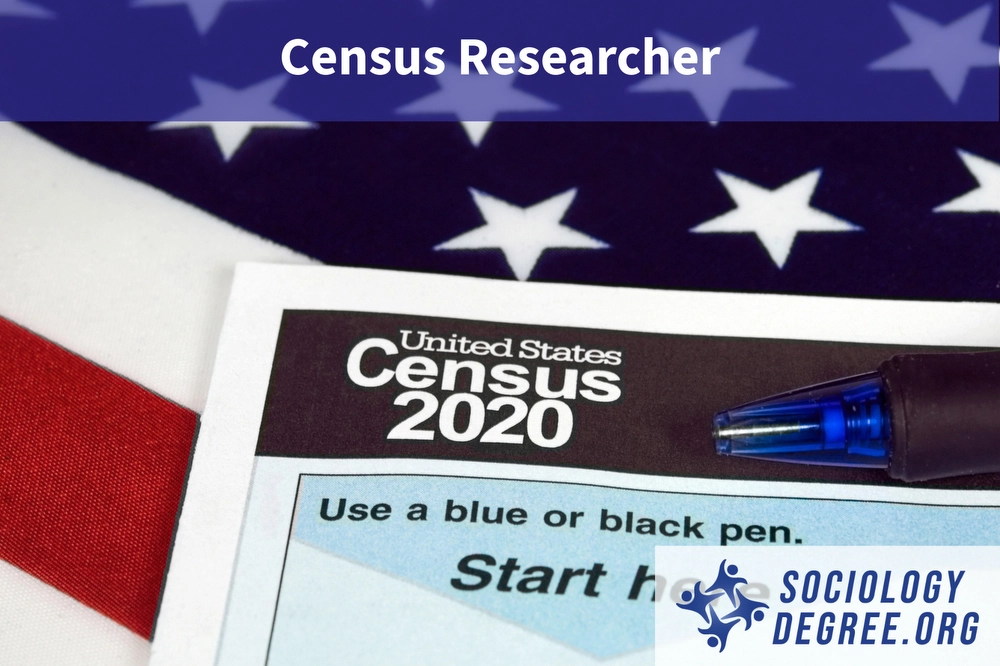A career as a census researcher offers the opportunity to collect, analyze, and interpret demographic data that informs public policy, economic planning, and social services. Census researchers play a critical role in understanding population trends, migration patterns, and community needs. A sociology degree provides an excellent foundation for this role by equipping graduates with skills in data analysis, research methodology, and understanding diverse social structures.
How to Become a Census Researcher
What is a Census Researcher?
A census researcher is a professional who gathers and interprets demographic, economic, and social data to provide insights that guide government agencies, businesses, and non-profit organizations. Key duties of a census researcher include:
- Designing and conducting surveys to collect population data.
- Analyzing census data to identify trends in demographics, housing, employment, and migration.
- Preparing reports and visual data representations to inform policy decisions.
- Collaborating with government agencies, research institutions, and private organizations.
- Ensuring data accuracy and ethical research practices.
- Utilizing statistical software and geographic information systems (GIS) for data analysis.
Census researchers work for government agencies such as the U.S. Census Bureau, research organizations, universities, and think tanks.
Why Get a Sociology Degree for a Census Researcher Career?
A degree in sociology is an ideal starting point for a career as a census researcher. Sociology focuses on understanding social structures, population dynamics, and research techniques, making it highly relevant to census work.
Key reasons why a sociology degree is suitable for this career include:
- Research and Data Analysis Skills: Sociology programs emphasize both qualitative and quantitative research methods, equipping graduates to collect and interpret large datasets.
- Understanding Social Trends: A background in sociology provides insight into population behaviors, migration patterns, and socio-economic factors.
- Statistical and Analytical Training: Many sociology courses include training in statistical software such as SPSS, R, or Python, which are essential for data analysis in census research.
To enhance their qualifications, students may pursue internships with government agencies, research centers, or public policy organizations.
Degree Pathways
A bachelor’s degree in sociology is a strong starting point for becoming a census researcher, but additional education or training may be beneficial. Here are the typical educational pathways:
- Bachelor’s Degree: A BA or BS in Sociology with coursework in statistics, demography, and research methods provides foundational knowledge and skills.
- Master’s Degree: A master’s in sociology, demography, or public policy can lead to advanced roles in data analysis and policy research.
- Ph.D. in Sociology or Demography: Higher-level research positions, leadership roles, and university teaching positions often require a doctoral degree.
Do I Need Any Credentials or Certifications?
While not always required, obtaining certifications can enhance employability and expertise in census research. Common options include:
- Certified Demographic Specialist (CDS): Offered by professional demographic organizations to validate expertise in population studies.
- Data Analytics and GIS Certifications: Training in geographic information systems (GIS) and data visualization tools can be highly beneficial.
- Professional Association Memberships: Organizations such as the Population Association of America (PAA) and the American Statistical Association (ASA) provide resources and networking opportunities.
Census Reasearcher Salary
According to the U.S. Bureau of Labor Statistics (BLS), the median annual salary for social science researchers, including census researchers, was approximately $65,000 in 2023. Salaries can vary widely based on several factors:
- Industry: Researchers working for federal agencies or think tanks typically earn higher salaries than those in non-profit organizations.
- Experience: Entry-level positions generally pay less than roles requiring extensive research experience.
- Education: Advanced degrees or certifications can lead to higher earning potential.
- Location: Urban areas or regions with a high concentration of research institutions often offer higher salaries.
For additional salary information, visit https://www.sociologydegree.org/resources/salary/
Why a Sociology Degree is Ideal for a Census Researcher Career
A sociology degree offers a strong foundation for a fulfilling career as a census researcher. By understanding population trends, social behaviors, and research methodologies, sociology graduates are well-equipped to analyze and interpret crucial demographic data. Combining academic training with relevant internships, certifications, and technical skills can position aspiring census researchers for success in this data-driven and impactful career.

